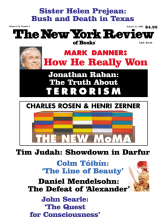Martin Malia, who died on November 19, was one of the great historians of Russia, and he was much more than that. Born in Springfield, Massachusetts, in 1924, he became equally at home in Paris, where he lectured for decades and knew such scholars as François Furet and Raymond Aron; in Moscow and St. Petersburg, where he befriended some of the great poets and dissidents of the twentieth century, among them Anna Akhmatova; in Warsaw and Kraków, where he sought out distinguished Catholic as well as secular thinkers like Adam Michnik; and in Berkeley, where he taught from 1958 to 1991, introducing generations of undergraduates and graduate students to European culture and the liberal tradition in politics. Conversations with him ranged across the intellectual and political history of the West. He talked with remarkable clarity about Pascal and Tolstoy, Thucydides and Hegel. With the slightest prompting, he unwound the stories and significance of medieval heresy and of absolutist monarchy, the breakthrough to liberty and, amid the urge for equality, the difficult advent of democracy.
Having earned a BA in French at Yale in 1944 and served in the US Navy during World War II, Martin studied at the École Normale at the same time as Michel Foucault, among other intellectuals who were to become influential (I remember his reminiscing with Foucault in California about those days thirty-five years later). In postwar France, Martin also encountered the Stalinism of the Parisian left, which he said inoculated him against Soviet-style socialism and Marxism. He took a Ph.D. at Harvard with Mikhail Karpovich, a former official of Russia’s shortlived Provisional Government swept aside by the Bolsheviks. Martin’s first book, Alexander Herzen and the Birth of Russian Socialism (1961), was not a biography of the Westernizer and Russian patriot but a meditation on the Russian intelligentsia as a historical class formed not by material conditions but by ideas. It remains one of the most illuminating books about the tsarist era. In “A War on Two Fronts,” published in the Russian Review, Martin defended Solzhenitsyn’s Gulag Archipelago against charges, Soviet and Western, of exaggeration and irrelevance. When the revolt of Polish Solidarity electrified the world in 1980, Martin went to Poland and described in these pages the religious belief and organization at its core.[*]
His experience of Polish society’s moral rejection of communism rejuvenated Martin, and his articles in The New York Review of Books brought his elegant style of analytical history wide attention. So did his briefly anonymous Daedalus article, “To the Stalin Mausoleum,” signed “Z,” pointing up the contradictions of Mikhail Gorbachev’s well-intentioned reforms, which was excerpted on an entire New York Times Op-Ed page. After the Soviet collapse, Martin’s accounts of the regime’s seventy-four ideologically driven years in Soviet Tragedy (1994) and of three centuries of history in Russia Under Western Eyes (1999) were greeted as masterworks. He had been largely isolated among Sovietologists; now his distinct voice emerged as authoritative—suddenly it was clear that he had been right all along—a turnabout he relished but distrusted, believing it would not last. He tried to be encouraging about Russia’s uncertain transition, while lamenting both the absence of trials and reparations for the murderous villainy of communism and the failure of many Western Sovietologists to confront their illusions about it. At the end, he was struggling to complete a definitive study of revolution, picking up where Tocqueville left off and where he began. An old-fashioned, disorganized, charming, and private man, Martin lived, from the other shore, the ardent public life of a Russian intelligent.
This Issue
January 13, 2005
-
[^*]: See "Poland: The Winter War," March 18, 1982; and "Poland's Eternal Return," September 29, 1983.



